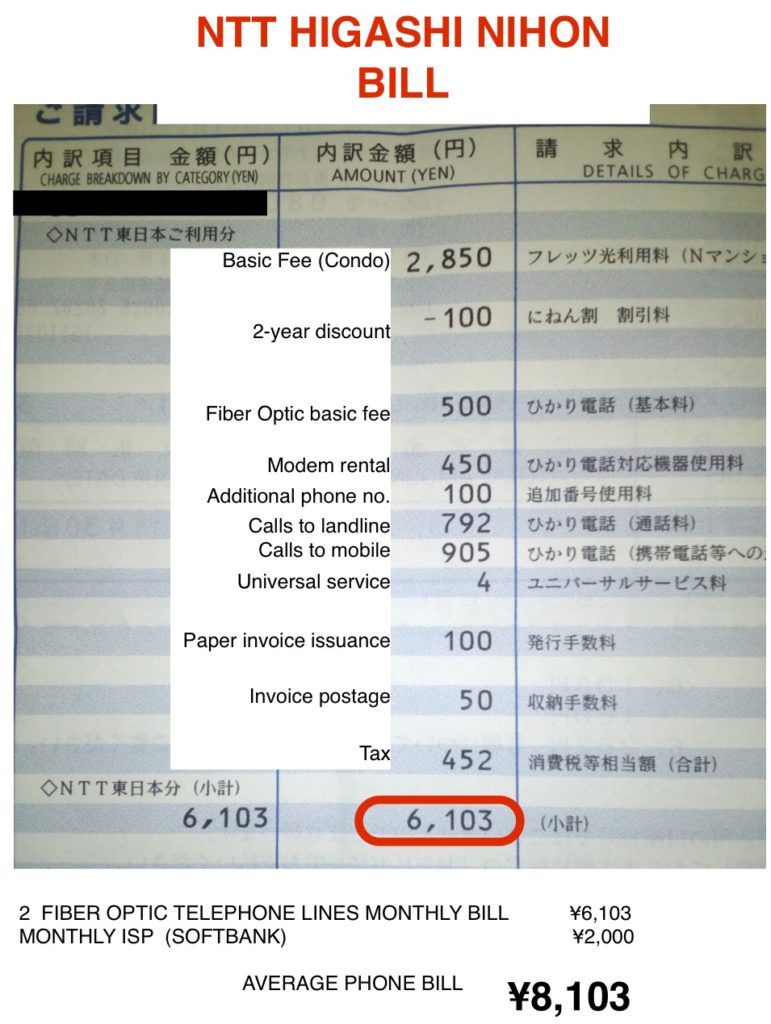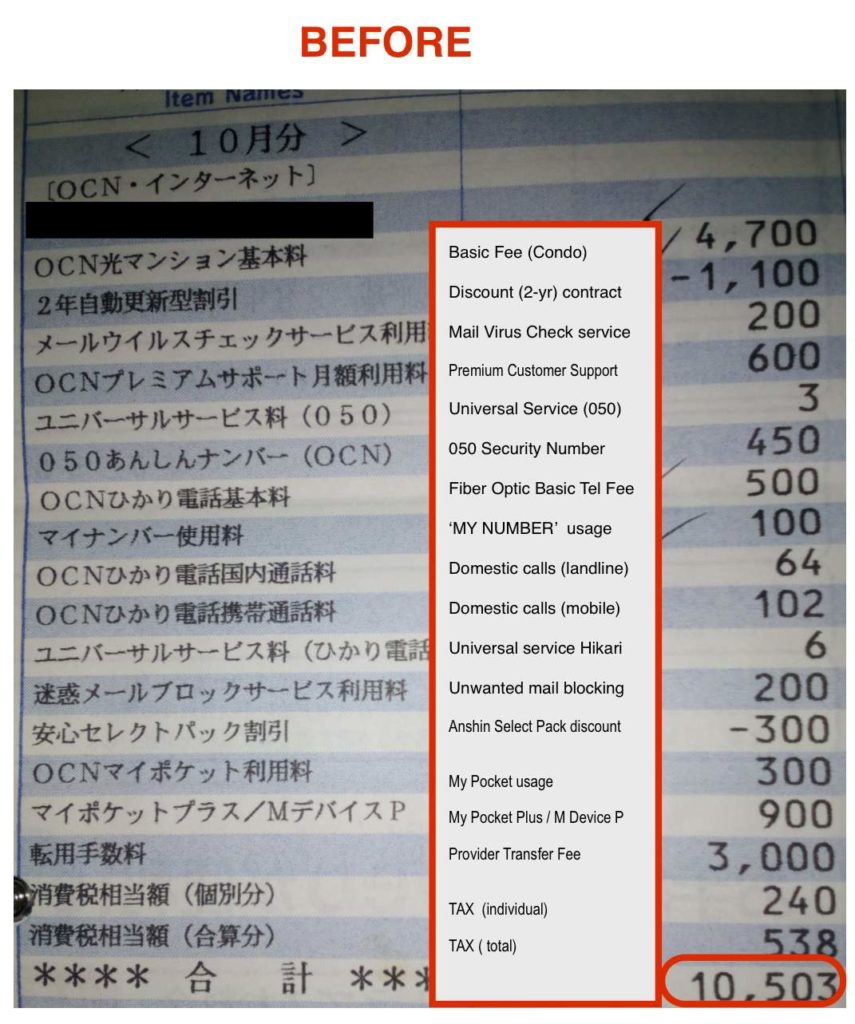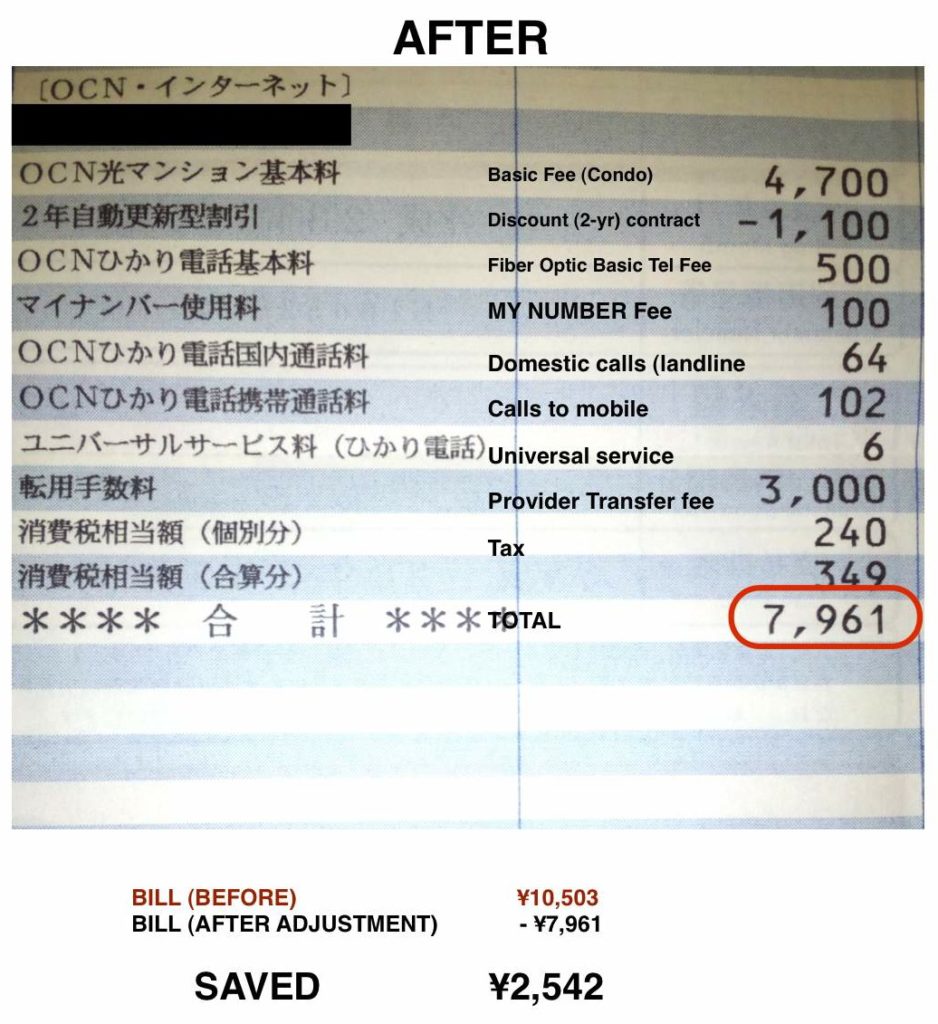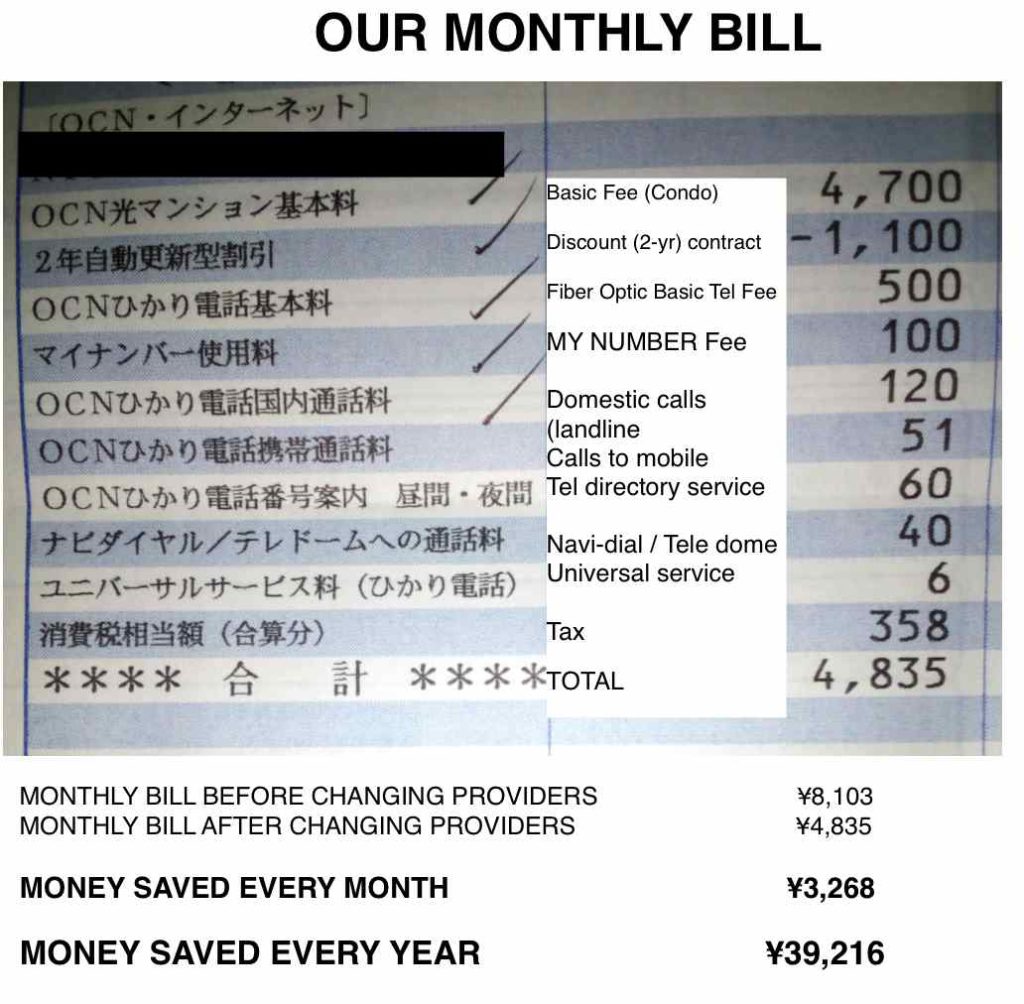- Belgium comes to Yamashita Park
- Residential Villa in Phuket Entices Remote Workers With Long-Stay Rates
- Rare pieces of French glass art at the Mirai Museum of Art
- Feast on fresh fish and seafood at the 2024 ‘Sakana’ Festival
- Would you like to ride in a Louis Vuitton gondola lift?
- Naked Snow Aquarium
- Festive lights at Yomiuriland will get you feeling the holiday vibes
Competition is a good thing. We saved money on Fiber Optic service by 50%.
In May 2016, the Japanese government revised the Telecommunications Business Law to protect consumers prompting service providers to:
1. issue an advance notice of renewal to subscribers tied up to a two-year contract;
2. create a breakdown of the use of service and explain to subscribers the timing of billing;
3. do away with complicated, difficult-to-decode fee structure;
4. provide consumers with concise explanation, cancellation terms, fees for option services;
5. introduce a regulated term for initial contract and cancellation;
6. provide a clear and polite explanation of services to senior subscriber
So a couple of months ago, my husband and I did a forensic on our broadband service or Hikari line with NTT Higashi Nihon (NTT East Japan). Here’s what our monthly phone bill looked like. 
Like most people, we needed internet and 2 fiber optic lines for home phone and fax for a few years which NTT Higashi Nihon provided. But NTT Higashi Nihon was only a Fiber Optic Line provider when we first signed up. We had to add up an ISP (Internet Service Provider) through Softbank (previously AT&T Spinnet) for ¥2,000 a month in order to access the internet.
As years passed, we used our home phone less and less and did all our communications via emails. We dropped to the barest essentials but we paid more for basic fees than the actual phone calls itself. So last year, we sat down and decided it was time to review the fees we were paying at NTT Higashi Nihon and looked for cheaper options.
Then just about the same time we were reviewing our options, we got a call from OCN (NTT Communications), an NTT reseller, informing us that they are running a campaign and if we wanted to switch to a cheaper fiber optic service, this time, with ISP service included. Who could say no to that? After a lengthy discussion, we dropped, in a heartbeat, to the most basic package possible. But switching to OCN required a transfer fee of ¥3,000 (one off). After crunching the numbers, we gave it a go.
The first phone bill from OCN (NTT Communication) arrives.

So when we received our ¥10,503 phone bill, we were disappointed. The kicker was when we started looking into the services and fees added to the bill, we discovered that OCN had put in ‘undecodable’ service names we did not ask for and much less, understand. So we called OCN and told them the phone bill was a deal breaker. We asked them what the added services were for and later told them ‘No thank you’ to some of the services we did not need.
After multiple ‘gomenasais’, OCN promised to adjust our bill which they did.
The adjusted bill arrives.

On the second month, the actual monthly bill arrives minus the transfer fee of ¥3,000 which we had paid on the first bill.

As you may see from the bill, we were billed for 3 different kinds of phone calls: 1) phone calls to a landline number 2) phone calls to a mobile phone number and 3) ‘Navi dial/Teledome is a phone call made to a number that starts with 0570.
We were happy with our new broadband service. We went from ¥97,236 to ¥58,020 a year and saved ¥39,216 a year.
How Can You Save?
You may not be able to switch broadband service if you are on a 2-year plan with your current provider. But what we learned from this budget cut is that NTT Higashi Nihon’s rates are way more expensive than the resellers if you do the math on an annual basis.
Our advice is to simply evaluate your options and do your calculations on monthly and yearly basis to arrive at a realistic number. Fiber Optic providers will name their service differently than other companies which can be confusing. That appears to be the goal. If it were easy to understand, it will also be easier for subscribers to compare fees and services. Besides, few people really care about what’s on the bill other than the actual phone calls. Another thing, don’t be put off by the cancellation fee if you are locked up on a two-year term with your current provider. What matters is that the annual cost is cheaper. That’s how you save money. Before switching, always ask what services will be on your next bill and how much it will look like without actual phone calls so that you can work your numbers realistically. You may be surprised at what you can do. Once again, ask yourself if a certain feature is really worth the cost you’re paying. It may be, but then again, you may decide it’s not, and you could save yourself a lot of money.














